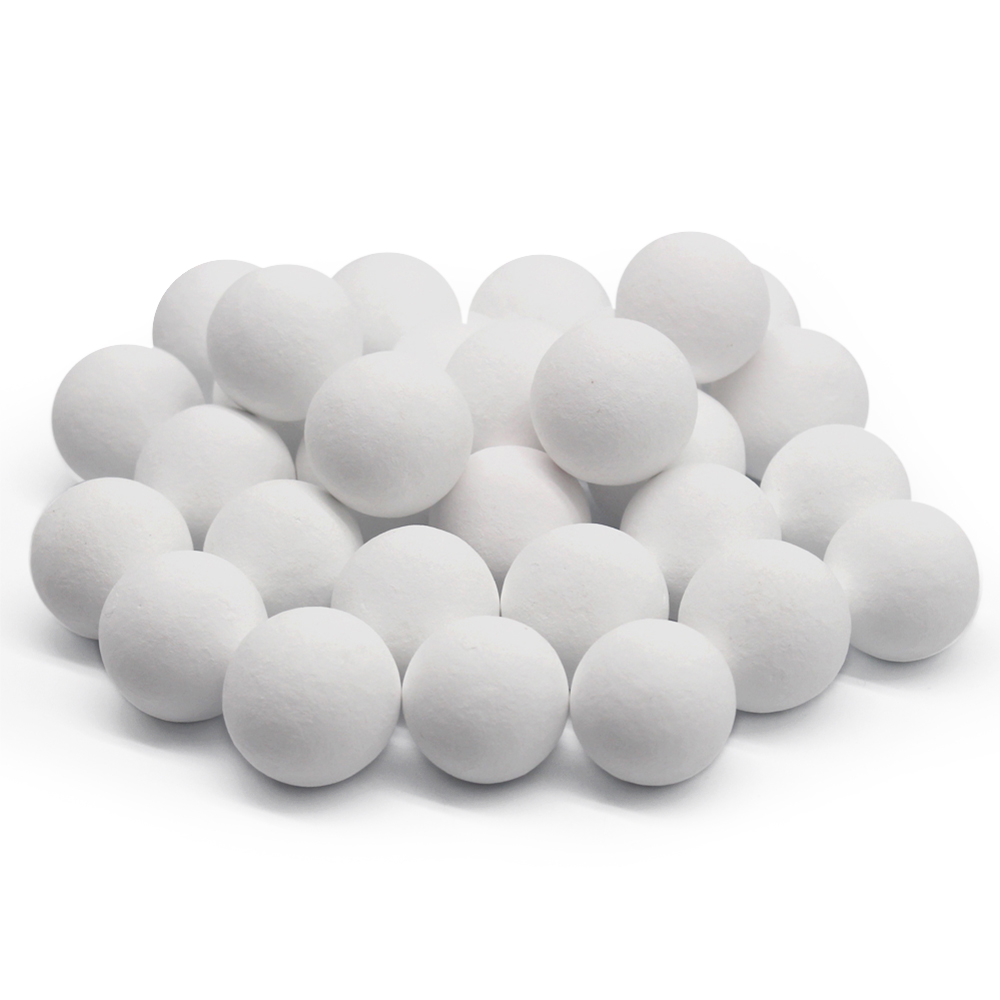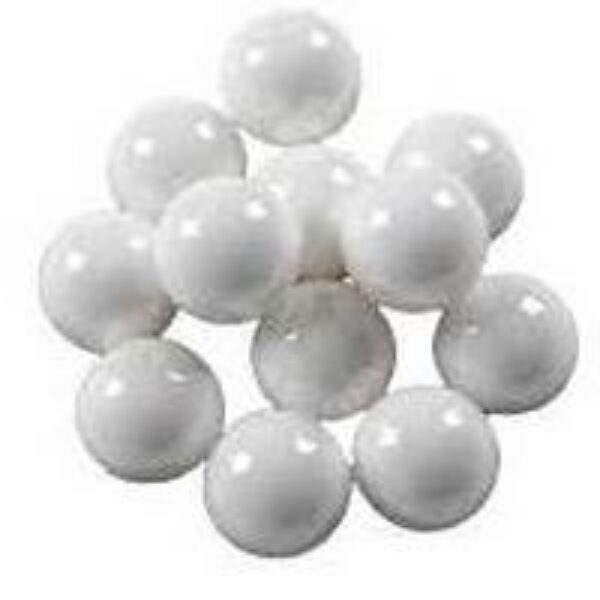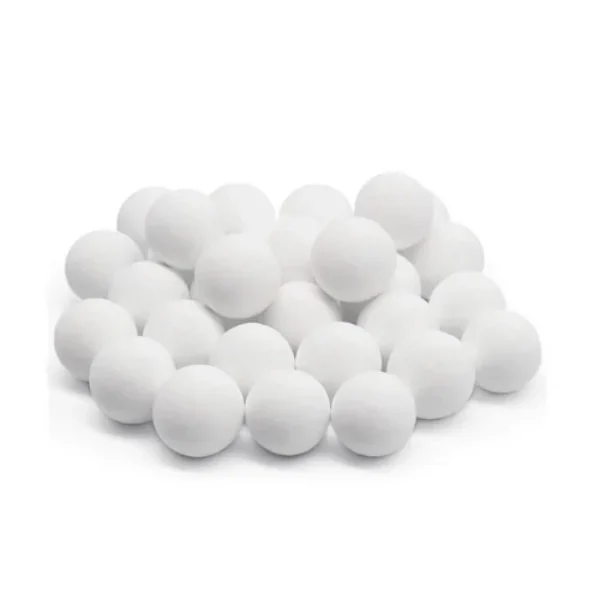Description


Alumina (Al₂O₃) ceramic balls are known for their exceptional corrosion resistance, high-temperature stability, and hardness. These characteristics make alumina balls one of the most versatile choices for industrial applications such as grinding, chemical processing, and high-temperature environments. With a density of approximately 3.9 g/cm³, alumina ceramic balls provide excellent performance and durability for demanding tasks.
Key Features
- Corrosion Resistance: Alumina balls are resistant to most acids, alkalis, and salts, making them ideal for use in harsh chemical environments.
- High-Temperature Stability: Suitable for high-temperature applications, alumina ceramic balls retain their integrity even in extreme heat, making them perfect for chemical processing and furnaces.
- Hardness and Wear Resistance: With their high hardness, these ceramic balls offer superior wear resistance, ensuring a longer lifespan and reducing maintenance needs.
- Non-reactive: The chemical inertness of alumina makes these balls suitable for use in industries where contamination must be avoided, such as food and pharmaceuticals.
- Water Absorption: Low water absorption (≤ 5%) helps maintain performance in environments where moisture exposure is a concern.
Product Specifications
| Property | Value |
|---|---|
| Chemical Formula | Al₂O₃ |
| Density | 3.9 g/cm³ |
| Hardness | Extremely hard, surpassing steel |
| Temperature Resistance | Capable of withstanding temperatures up to 1750°C |
| Corrosion Resistance | Resistant to most acids and alkalis |
| Water Absorption | ≤ 5% |
| Crush Strength (kN/bead) | ≥ 0.2 |
Applications
- Grinding Media: Alumina ceramic balls are used as grinding media in ball mills to crush or blend materials like chemicals, ores, and ceramic powders. Their hardness ensures efficient grinding without contaminating the processed materials.
- Chemical Processing: Due to their corrosion resistance, alumina balls are used in chemical reactors and pipelines to handle aggressive chemicals without degrading.
- Filtration Systems: Alumina balls are also used in filtration systems where their inert nature helps maintain the purity of the filtered materials.
- Bearings: In high-temperature and corrosive environments, alumina balls serve as effective bearing materials, providing a longer-lasting alternative to traditional metal bearings.
- Catalyst Support: Alumina balls are used as support media for catalysts, offering a stable and chemically inert foundation.
Benefits
- Durability: The high hardness and wear resistance of alumina ceramic balls provide a long-lasting solution, reducing replacement frequency and operational downtime.
- Lightweight: Compared to steel balls, alumina balls are lightweight, which helps reduce overall equipment weight.
- Chemical Inertness: Ensures that there is no risk of contamination, which is crucial in sensitive industries such as pharmaceuticals and food processing.
- Resistance to Rapid Temperature Changes: These ceramic balls are resistant to rapid temperature differences, ensuring reliability in fluctuating thermal environments.
Available Sizes
Alumina ceramic balls are available in a variety of sizes, ranging from 1 mm to 50 mm, making them suitable for diverse applications. Please specify the desired size when placing an order.
Ceramic Balls 101: Understanding Their Types, Uses, and Benefits



Reviews
There are no reviews yet.